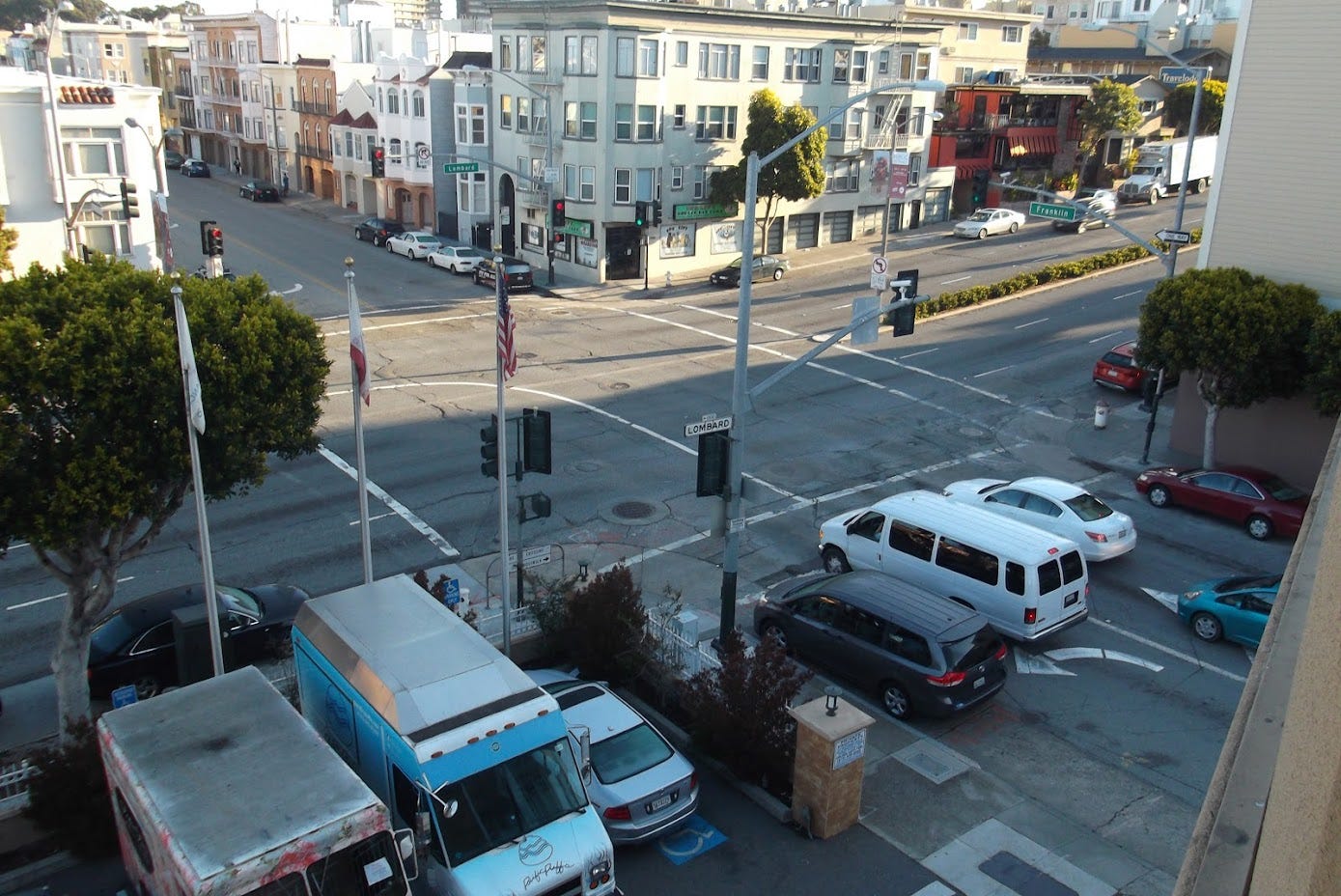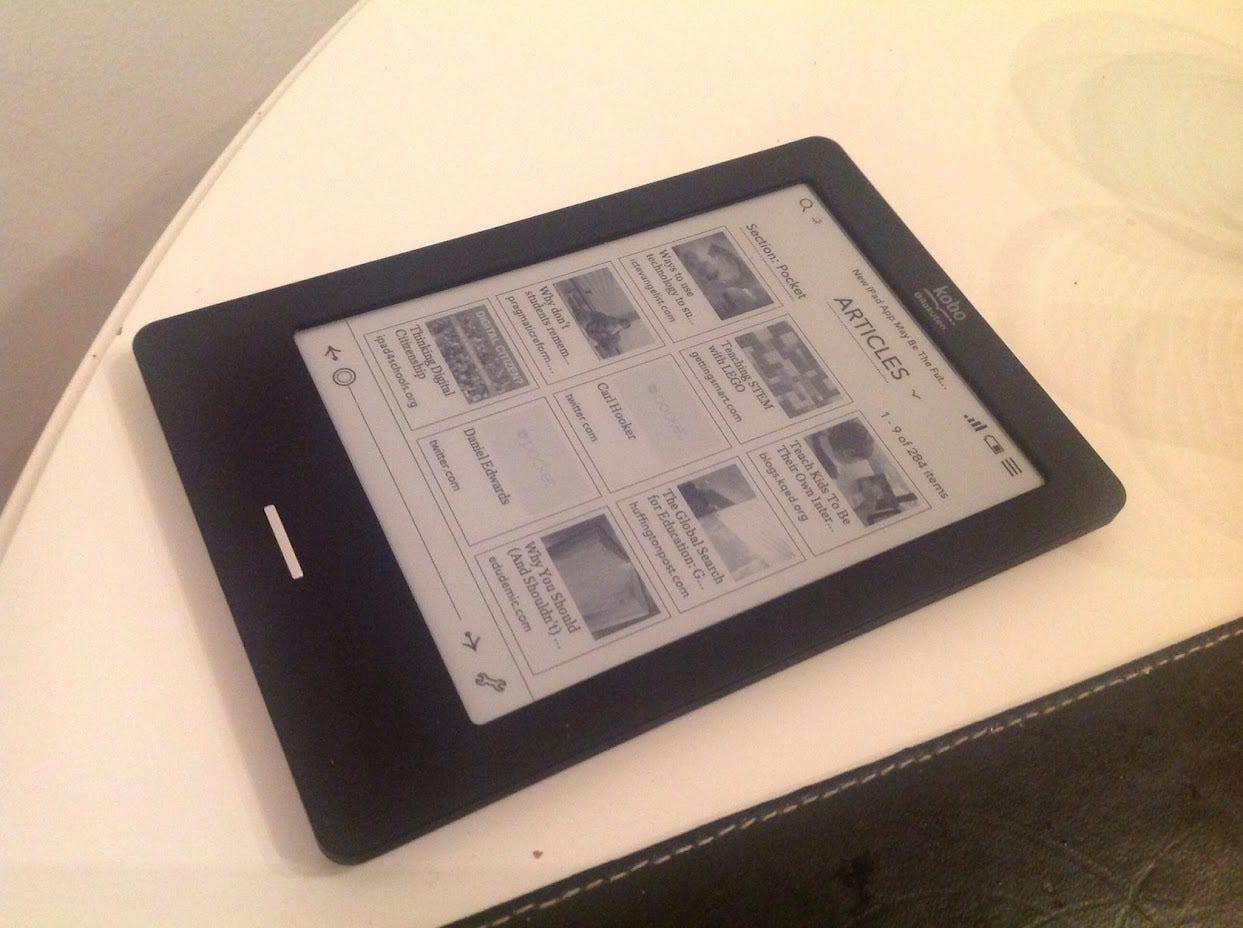Stop gatekeeping, I'm just trying to read
The exhausting cycle of digital adaptation
I remember one of the first times I really explored Pocket on my Kobo, as my family napped in the Francisco Bay Inn in April 2014. I’d bought the Kobo in a sale the previous Christmas and, while I’d set up my Pocket connection pretty quickly, work took over and I hadn’t really had a chance to explore the possibilities of the e-reader until this holiday.
My device was bursting with articles I’d saved from my Twitter account. Too many probably, I remember it being overwhelming. But it whiled away a few hours as my family slept and quickly became my preferred use case for the Kobo on that trip.
I didn’t keep the Pocket library tidy though and on discovering - after the Twitter exodus - that most of the links in my 10-year curated library no longer worked, I decided to clear everything out (14,000 links) and start from scratch. With a clear use case and empty library, I made new connections through Substack and expanded my newsletter subscriptions again.
That was November 2024. Just a few months later, in May 2025, Pocket announced it was shutting down.
I had spent a lot of time working out how to transfer newsletter subscriptions into a place where I could read them without distraction. My Kobo was a perfect, distraction free location. The work required to get to this stage felt worthwhile.
When Mozilla decided to end the service, they claimed that the way people use the Internet was changing and that their decision reflected this demand.
But was removing how web users access their trusted news sources, filtered by their interests, the right decision? Was it made intentionally and altruistically, based upon feedback from their many users, in an attempt to improve the Internet for future communities? Or was it a calculated decision to maximise ever increasing profit margins while they continue to reduce their human workforce in favour of AI agents? The cynic in me knows the answer.
Small companies set up to provide utility to these larger services also suffered. ReadEmailLater, an excellent service which translated email newsletters into properly formatted, readable Pocket articles, is currently in limbo while Kobo users wait to see what features Instapaper will enable on their currently basic integration.
In between Mozilla’s Pocket rug-pull and the limited Instapaper replacement, I spent time installing KOreader on my device. This appears as a book on your device but, when you tap on it, runs a document reading service with many useful add-on tools. Wallabag is one of these add-ons. I decided to pay to access the hosted service until Instapaper appeared and, while it wasn’t as easy to access as Pocket on the Kobo device, it did allow me to add RSS feeds from my newsletter sites.
After a month or so of attempting to use Instapaper with the Kobo, I’ve decided to return to KOreader and Wallabag. The main reason for this is Kobo’s lack of integration with articles emailed into Instapaper. I need something that works conveniently, that when I sync is guaranteed to retrieve all new articles and not just the ones it wants to send me.
And just when I’d figured out my new workflow, my Internet provider kindly upgraded my connection to 500Mbps and sent me a new router to take advantage of the much higher speeds. Of course, this introduced more problems.
The new router has removed the capacity for older devices that utilise the 2.4Ghz network from connecting. The settings have been locked down. This means that the beloved Kobo has been cut off from the home wifi and, currently, the only way to sync is to set up a mobile hotspot when I’d like some new articles.
I also noticed that the PowerLine adapters we have around the house limit the upload and download speeds to around 50Mbps. Previously they were the best way to get stable data transfer around the house. Now, with WiFi providing more than five times as fast a connection, they have become obsolete.
Maybe this is simply what living with technology means now: humans living with endless cycles of adaptation and workarounds. The promise of convenience delivered, then revoked, then partially restored in a less satisfying form. I’ve rebuilt my reading workflow twice this year and I’ve no doubt I’ll need to rebuild it again.
For now, the mobile hotspot solution works well enough, even if it’s absurd that it’s necessary.
I’ll take my small victories where I can find them. KOreader and Wallabag are open-source, which means they can’t be “sunset” on someone else’s quarterly earnings call. That’ll have to be good enough.




